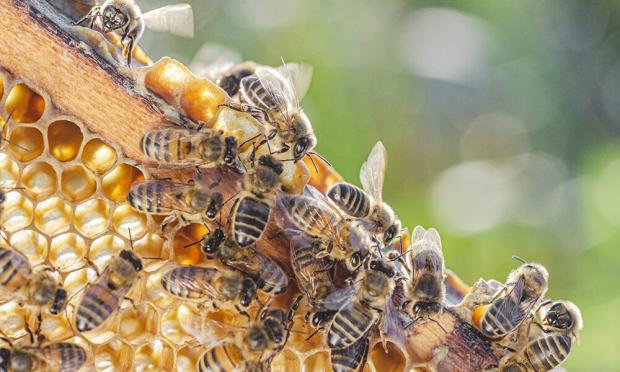
Breaking News
 Turning All U.S. Roads into Toll Roads: "Tax by Mile" is Here
Turning All U.S. Roads into Toll Roads: "Tax by Mile" is Here
 RFK's Deputy: Saviour or Wolf in Sheep's Clothing?
RFK's Deputy: Saviour or Wolf in Sheep's Clothing?
 One of America's biggest companies is imploding
One of America's biggest companies is imploding
 Zombie Voyager 1 Spacecraft Resurrects Its "Dead" Thrusters Over 15 Billion Miles Away
Zombie Voyager 1 Spacecraft Resurrects Its "Dead" Thrusters Over 15 Billion Miles Away
Top Tech News
 Watch: Jetson's One Aircraft Just Competed in the First eVTOL Race
Watch: Jetson's One Aircraft Just Competed in the First eVTOL Race
 Cab-less truck glider leaps autonomously between road and rail
Cab-less truck glider leaps autonomously between road and rail
 Can Tesla DOJO Chips Pass Nvidia GPUs?
Can Tesla DOJO Chips Pass Nvidia GPUs?
 Iron-fortified lumber could be a greener alternative to steel beams
Iron-fortified lumber could be a greener alternative to steel beams
 One man, 856 venom hits, and the path to a universal snakebite cure
One man, 856 venom hits, and the path to a universal snakebite cure
 Dr. McCullough reveals cancer-fighting drug Big Pharma hopes you never hear about…
Dr. McCullough reveals cancer-fighting drug Big Pharma hopes you never hear about…
 EXCLUSIVE: Raytheon Whistleblower Who Exposed The Neutrino Earthquake Weapon In Antarctica...
EXCLUSIVE: Raytheon Whistleblower Who Exposed The Neutrino Earthquake Weapon In Antarctica...
 Doctors Say Injecting Gold Into Eyeballs Could Restore Lost Vision
Doctors Say Injecting Gold Into Eyeballs Could Restore Lost Vision
Bees Are Behind Our Food And Natural Medicines - And They're Disappearing

Between 2023 and 2024, US beekeepers lost an estimated 55.1 percent of their colonies—the worst loss in more than a decade and nearly 15 percent higher than the previous 13-year average.
Bees pollinate three-quarters of the fruits, vegetables, and nuts we eat, and many of us rely on bee products for their nutrition and health-promoting gifts. If bees vanish, it's scary to think of all we stand to lose. And some say that if the bees go, we go too.
Jeff Pettis, president of Apimondia—The International Federation of Beekeepers' Associations—sums up the health benefits that bees offer humans in one word: huge.
Although two-thirds of our diet comes from carbohydrates—crops like rice, wheat, and corn—which are pollinated by wind rather than insects, many other important foods require bees.
"So we're not going to starve if we don't have bees. But literally, everything you can think of that's nutritious—fruits, nuts, and vegetables—all of those are, we'll call it, animal-pollinated. The vast majority of those are pollinated by honey bees or other wild bees," he told The Epoch Times.
Bees Pollinate
Ryan Burris is a third-generation beekeeper and the president of the California State Beekeepers Association. He points out that many people don't realize how many fruits and vegetables we eat depend on bees for pollination.
"The biggest one, obviously, for beekeepers, is almonds. And then you have things like blueberries, watermelons, and stuff you don't think about, like onions and carrots—all require pollination. There's an estimated 100 crops that require pollination," he told the Epoch Times.
Twenty thousand species of bees grace our planet, and 4000 species are native to the United States. Bees are some of our most well-known and beloved pollinators. One in every three bites of food you eat depends on pollinators to produce, and bees pollinate one in every four bites.
Beyond their critical role as pollinators, bees also gift us powerful products like honey, bee pollen, propolis, and royal jelly—each packed with nutritional and medicinal benefits.

 Node without Consent
Node without Consent Dark Matter: An 86-lb, 800-hp EV motor by Koenigsegg
Dark Matter: An 86-lb, 800-hp EV motor by Koenigsegg

